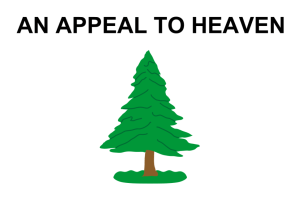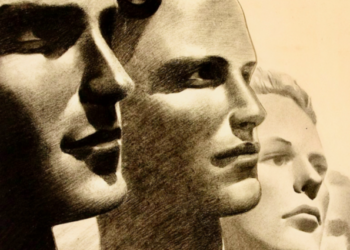I have come that they may have life and have it to the full – John 10:10.*
SHOULD YOU ever find yourself in these circumstances, based on my experience, this is what is likely to happen to you if you are caught trespassing at 2am in the scullery of a hotel kitchen in Warminster: zilch.
When the night concierge decides you’re unworthy of police attention, that you’re more to be pitied than feared, that’s when you know you’ve graduated into the ranks of the irredeemable, and, possibly, the invisible.
Some context might be helpful. I ‘slept rough’ and was then hostel homeless for two years, beginning in November 2015. Don’t believe the Jack London stuff; as a lifestyle, it is sub-optimal.
My outcast months were spent in the West Country. As well as hotel kitchens, I slept in parks, graveyards, cars, car parks, libraries and, on one occasion, in a skip. Bath, incidentally, retains its beauty even when viewed through the dosser’s eyes. Perhaps, this is because the vagrant mind is less troubled by the city’s notorious parking and traffic flow irritations.
The family of rough sleepers is as dysfunctional as any. It can also strike an unorthodox attitude to the nuances of the common law. Among its alumni, we can famously count George Orwell, who noted that some of us ‘lived lives that were curious beyond words’.
Why try to write about it, given the difficulty? In a way you shouldn’t, or can’t. As Orwell implies in his prototypical work of existential gonzo journalism, the jaggedness of this life is kind of incommunicable (unless you areOrwell, I guess). You can’t convey a sense of what it’s like to be ‘out’ except perhaps anecdotally, or by what Aquinas, referring to the nature of God, calls the via negativa. When you dress an experience in the language of anecdote and refashion it for a publication, the less flattering details will likely be sacrificed. You develop habits of unconscious self-censorship; memory becomes a hostage to imagination.
This is the bit where I’m supposed to confront you with the ‘facts’: that on any given night, upwards of three thousand people sleep outside, each with their own complexities, not always connected to addiction, and each a locus of unique and infinite value (from His perspective, at least).
However, this would be to indulge a very chic tendency: to transform a moral problem into a matter of mathematics and to turn once again to what Kant called the ‘serpent windings of utilitarianism’. We shouldn’t do morality by numbers; that way, you hand it over to those in charge of the stats.
In any case, we all know about these things, if not in granular terms. Yet, so many of us (and I don’t exempt myself) are reluctant to hand over that extra coat. We all acquiesce to some extent in the tyranny of material attachments. Therefore, I’ll restrict myself to a brief ‘note from the underground’. What do I think I learned from my extended experiment in parallel living?
Thomas Hobbes described life in the ‘state of nature’ as being ‘nasty, brutish and short’. The phenomenon of street homelessness does not conform to Hobbes’ thought experiment. Hobbes was from an affluent clerical background and so, he can perhaps be allowed this failure of imagination. At times, it doesn’t seem that nasty; at others, not quite short enough.
Rough sleeping – if we look past the starvation and physical pain – is more like what Wittgenstein called a ‘form of life’, with its own vocabulary, grammar and, yes, etiquette. When the sum of your possessions tends to zero, the theft of a tent, the invasion of street space, etc. can become insults of existential significance. This is the first lesson: the state of nature is not a historical fact (Hobbes doesn’t suggest it is, to be fair). Even in wretchedness, the instinct to co-operate usually cuts through.
I thought often about our relationship to time. The nature of time and our relationship to it had been an intellectual concern to me in a long-ago life as a professional philosopher. Street life gave me a new take on this. I became convinced that if Einstein had been a real tramp, rather than merely looking like one, he’d have written that the ‘frame of reference’ to which time is relative must include the socialas well as the physical situation of the observer. In the indigent life, time feels different. It is measured out not in Eliot’s ‘coffee spoons’, but by the opening hours of the soup kitchen.
Finally, I learned that you’d have to be an idiot, and at several comfortable degrees of separation from the poor, to be a socialist. The machinery of the State operates perversely when let loose on real world situations. My first Christmas was to be spent in a shelter in Bath, but it didn’t happen that way. The temperature dropped so low that a cold weather emergency protocol was triggered, and the local authority requirement – that shelter should be offered primarily to those with a ‘local attachment’ – was suspended. I was asked to leave the hostel to make room for some homeless people from Eastern Europe. I was not alone.
This might have been the most important lesson: kindness exists in the small transactions which happen between people, and the State’s intrusions often are little more than a comfort blanket for the less charitable among us.
I have seen this kindness often, and it comes in unexpected ways, sometimes via the unlikeliest of sources. I have seen the opposite, when encountering those who are thinking highly of their own goodness, as they step over you on their way out of church.
It would be a bit too ‘Hallmark cards’ to say something like homelessness moved me ‘from despair to acceptance’ or whatever. Orwell was right in saying that we don’t really have the language to clearly set out the axioms of spiritual physics, but sometimes, the laws of grace become clear, if momentarily. A couple of Christmases after this awful part of my life, my then-ten-year-old son insisted on giving money to the man who was ‘homeless like you were, Daddy’. A week later, that same person (Mark; he has since passed) called him over and gave it back to him, with more.
Somehow, the truth that was given to me through the street life had been communicated to him as well: it is a spiritual obligation to give as a gift that which you have been given as a gift, sure in the knowledge that it will come back to you with interest.
Were you to ask me whether such a revelation made it worth it – the pneumonia, the general compromise of the immune system, the mental health consequences, etc. – I’d tell you to not ask stupid questions. Of course not, but it’s something, I guess.
*This is written above the entrance of the Christian hostel which brought me back to life and returned this father to his son. That hostel is Alabare. It serves also disregarded veterans, victims of domestic violence, people with learning challenges and many others in need of the works of corporal and spiritual mercy. It does so in Wiltshire and beyond.










